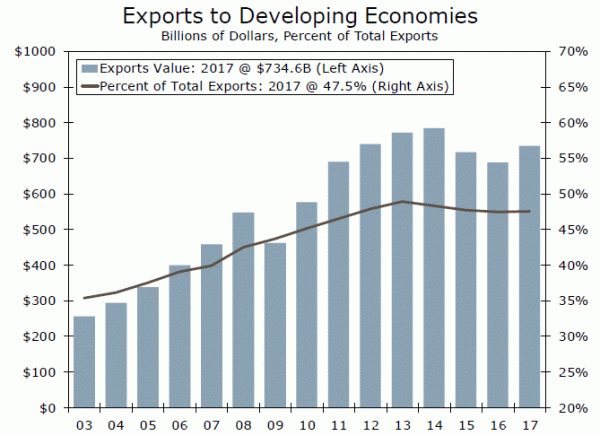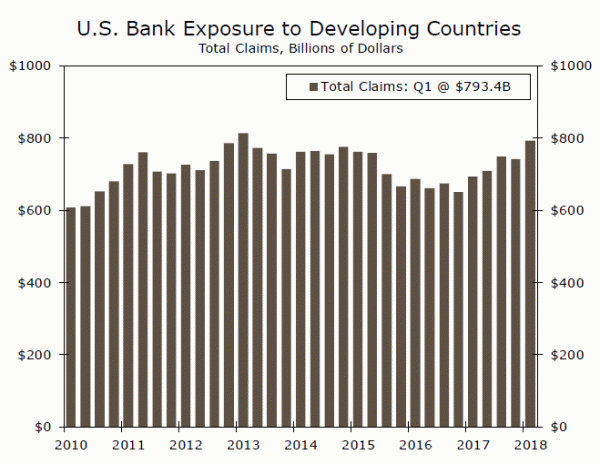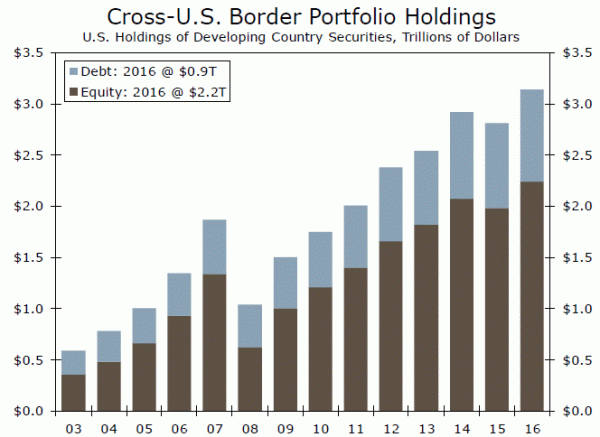The exposure of the U.S. economy to the developing world has increased over the past two decades, but the U.S. expansion likely would not be derailed by financial crises in EM economies, should they occur.
U.S. Economy Has Limited Exposure to the Developing World
In a recent report we argued that emerging market (EM) economies are generally better able to service their external debt than they were 20 years ago.1 Consequently, we do not think that a wave of Turkey-like financial crises will sweep through EM economies as they did in 1997-1998. But what if we are wrong? What if financial crises were to engulf a significant number of EM economies in coming months? How much exposure does the U.S. economy have to the developing world?
Let’s start with trade exposure. American exports to developing economies shot up from about $250 billion in 2003 to more than $700 billion last year (top chart). Today, developing economies account for roughly one-half of U.S. exports. But exports of total goods and services are equivalent to only 14 percent of U.S. GDP. American exports of goods and services to developing economies would need to weaken significantly to have a meaningful effect on U.S. GDP growth. As a point of reference, the value of American exports of goods to developing economies declined only 4 percent between 1998 and 1999 in the wake of the severe economic and financial crises that swept through the developing world 20 years ago.
What about American banks? How much exposure do they have to EM economies? Data from the Bank for International Settlements (BIS) show that the exposure of the American banking system to developing economies totaled nearly $800 billion at the end of Q2-2018, which is obviously a sizeable amount (middle chart). However, the financial assets of the U.S. banking system exceed $15 trillion, so exposure of American banks to developing economies represents only 5 percent of their financial assets at present. Unless all EM assets become completely worthless, which is not very likely, the American banking system should be able to weather whatever storm that financial crises in developing economies were to throw its way.
What about American investors? Do they have significant exposure to emerging market economies? At the end of 2016 (latest available data), Americans owned about $3 trillion worth of EM stocks and bonds (bottom chart). Sharp declines in the value of those assets probably would not go unnoticed by American investors. But American households held $75 trillion worth of financial assets at the end of 2016. A complete rout of EM financial markets, should one occur, would not lead to catastrophic losses for most American households.
In sum, the U.S. economy has only limited exposure to EM economies. Twenty years ago, the financial crises that swept through the developing world had only marginal effects on the U.S. economy. Although American exposure to the developing world has increased over the past two decades, financial crises in EM economies today likely would not derail the U.S. economy.



